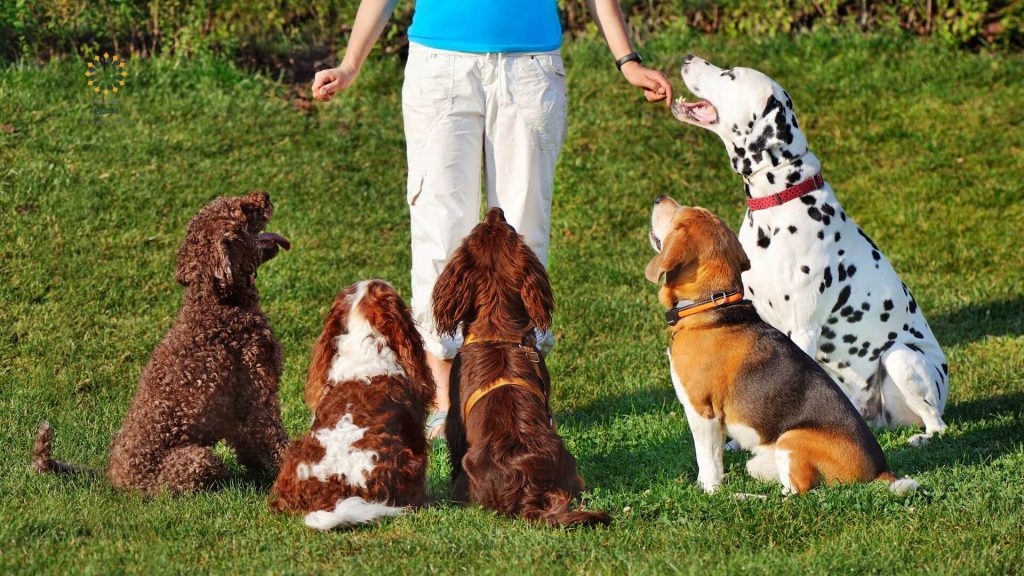In many places, people think Islam teaches Muslims to dislike dogs. The rumor usually comes from purity rules in prayer. Some scholars consider dog saliva impure, so if it touches a person’s clothes, they wash before praying. Over time, a simple cleanliness rule turned into a loud claim: “Muslims hate dogs.” That is not true.
Islam teaches that all creatures are part of God’s creation and deserve mercy. Dogs are not evil, not cursed, and not outside that mercy. The rules are about cleanliness, not dislike.
Mercy First: The Prophet’s Teachings
The Prophet Muhammad (peace be upon him) told stories that place kindness to animals at the heart of faith. In one famous hadith, a person was forgiven by God after giving water to a thirsty dog. In another case, a person was punished for starving a cat. The lesson is clear: cruelty is a sin, mercy is worship.
These teachings show us the standard: feed, water, protect, and never harm animals. If a dog is hungry, we feed it. If it is hurt, we try to help or call someone who can. This is not a small part of Islam but a part of being a good believer.
The Qur’an’s Story of a Loyal Dog
The Qur’an (Surah al‑Kahf) tells the story of young believers who fled for safety; their dog lay at the cave’s entrance, keeping watch. The dog is mentioned with respect, as part of the group’s story of courage and faith. If Islam “hated” dogs, this quiet honor would not sit inside a sacred chapter read weekly by Muslims around the world.
So What About the Purity Rules?
Islam uses a careful system of ritual purity for prayer. Many scholars teach that dog saliva is impure, so if it gets on your clothes or skin before prayer, you must wash. Some narrations even give a method for cleaning bowls if a dog drinks from them. This is about hygiene and spiritual readiness, the same way we wash after using the bathroom or before touching the Qur’an.
Impure does not mean hated. Think of it like mud on your shoes. You do not hate the ground—you just clean your shoes before entering a clean place. In the same way, Muslims may avoid direct contact with dogs before prayer to keep their prayer clothing pure. After prayer, many Muslims happily play with and feed dogs, then wash again when needed.
Dogs In Daily Muslim Life
Across history, Muslims have kept working dogs for herding, guarding, and hunting because they are useful and loyal. Today, many Muslims support rescue groups, fund veterinary care for strays, or leave water containers outside in hot weather. In some cultures, dogs live mostly outdoors; in others, they share indoor spaces with certain limits. Practices differ by family, culture, and scholarly view, but the common ground is kindness.
Where scholars differ is usually on pet dogs inside the home. Some encourage keeping dogs only for clear needs (guarding, service, therapy, search‑and‑rescue). Others allow more flexibility if cleanliness for prayer is maintained and neighbors are safe. In all cases, cruelty is forbidden.
Compassion With Boundaries
A balanced, practical approach might look like this:
- Feed and water street dogs and set out a bowl in summer.
- Call a vet or rescuer if a dog is injured or sick.
- Teach children to be gentle with animals and not to tease or throw stones.
- If keeping a dog: vaccinations, clean space, regular care, and respect for prayer cleanliness by washing when needed.
- Respect neighbors: secure your dog, prevent noise and fear, and keep public paths clean.
This balance respects both mercy and purity, and the two values that sit together in Islamic teaching.
If you have heard that Muslims “hate dogs,” please look again. Many Muslims are simply following cleanliness rules around prayer. Even those who choose not to keep dogs as pets can still be deeply compassionate to animals. You will find Muslims who sponsor spay‑and‑neuter drives, pay for medical treatment of strays, and campaign for animal welfare laws. The faith teaches them to do so.
Quick Answers To Common Questions
Can Muslims keep dogs?
Yes! Especially for needs like guarding, service, herding, and hunting. Some scholars allow pets with conditions of cleanliness and safety.
Are dogs “haram”?
No. Dogs are part of creation. Certain rules apply to saliva for prayer; that is not the same as haram.
Can a Muslim be kind to a dog?
Not only can—they must. Mercy is a religious duty.
Why do some Muslims avoid touching dogs?
To keep prayer clothes clean. Many will pet a dog and then wash—simple as that.
Mercy Is The Headline
The most accurate headline is not “Muslims hate dogs.” The headline is: “Islam commands mercy.” If a thirsty dog stands before you, you give water. If a wounded dog limps by, you call for help. You do not need to own a dog to be kind; you just need to remember that God loves gentleness. A bowl of water, a careful hand, a quick prayer—and a tail that wags. That is what Islam looks like in the real world!



